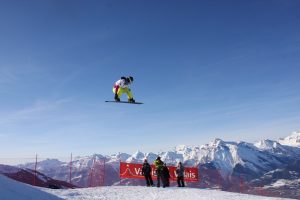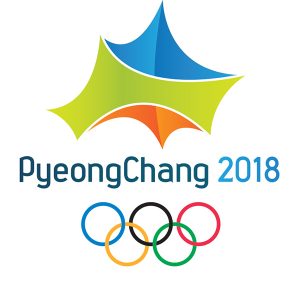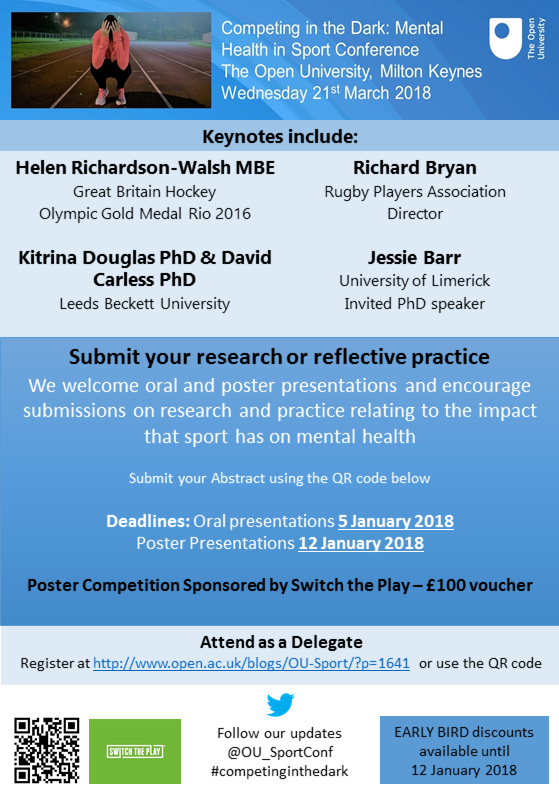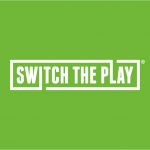By Candice Lingam-Willgoss

Zoe Gillings-Brier and her daughter Léa
One of the most significant life transitions that females can face are those related to pregnancy and motherhood. This transition can be all the more meaningful for active females due to both the physical implications and challenges related to gender ideology which can lead to conflict positing that women’s true role is to have and care for children (Weedon, 1997).
Traditionally women at elite levels have been expected to retire once they have children and this is factored into their retirement planning both because of expectations that they’ll be taking on childcare and because of the physiological impact of childbirth. However, it is becoming more and more common for elite athletes to decide to pursue their athletic career alongside motherhood and strive for both career and maternal success. One such athlete is Snowboard Cross athlete Zoe Gillings-Briar who is competing in her 4th Olympics in PyeongChang; but her first as a mother. She became mother to Léa in August 2016 and has openly discussed how she has taken inspiration from Jess Ennis-Hill “To see how Jess came back after pregnancy was awesome and hugely inspiring” (Gillings-Brier, 2016 cited in BBC Sport, 2016).
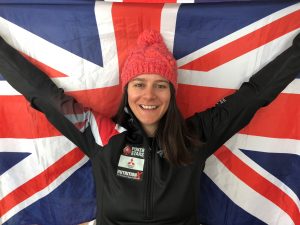
Zoe Gillings-Brier
Winning Mums
Ennis-Hill is not the only elite athlete to return to winning form following the birth of her son Reggie. McGannon et al (2012) explored the experiences of Paula Radcliffe following her return to competition after the birth of her first child, she came back and won the 2007 New York marathon 10 months after giving birth to her daughter. Likewise, five time Olympian Jo Pavey also re-wrote the history books at the 2014 European Championships winning the 10,000m gold to become the oldest female European champion in history, and like Radcliffe she did this 10 months after giving birth to her second child. More recently, Serena Williams has begun her comeback following the birth of her first child in September 2017, and while she has suffered some setbacks she is adamant that she aims to regain the top spot in the woman’s game (BBC sport, 2018).
Does type of sport make a difference?
With optimal fertility often falling at the same time as peak performance the decision to have a baby is often a meticulously planned for event in the case of an elite athletes (Cunnama, 2017). While research looking at the area of physical activity during pregnancy suggests that being physically active is beneficial to both mother and foetus not all forms of physical activity or sport will be appropriate (Barakat et al., 2015). It is recommended that higher risk sports such as those with risk of trauma (e.g. hockey), physiological risk (e.g. scuba diving) and collision (e.g. downhill skiing) should be avoided (Barakat et al., 2015). In contrast research exploring low risk sports has indicated that it is possible for competitive athletes to maintain strenuous regimes during their pregnancy and train at high volume (Kardel, 2005). This can result in a return to high intensity training postpartum and a more rapid return to competition (Erdener and Budgett, 2016). There are also a number of examples of athletes who have competed while pregnant such as Beach Volleyball player Walsh Jenning who competed at 5 weeks pregnant and rifle shooter Mohammed Taibi who competed at 8 months pregnant. These two examples from the London 2012 Olympic games illustrate that type of sport has a clear bearing on what an elite athlete is still able to do during pregnancy.
This was explored further by McGannon and Schinke (2013) who looked at the different experiences of athletes from different types of sport specifically those that requiring specialist settings and significant travel for competition and training. Both of these factors can take a mother away from her family subsequently making a return to training and competition even more problematic. This is one such challenge faced by the majority of Winter sports athletes if they don’t live in a location with easy access to snow or ice. This is particularly pertinent to the return of Zoe Gillings-Brier who’s sport of Snowboard Cross requires not just snow but also a boardcross piste. One might think this would make it impossible to juggle motherhood and sport but Gillings-Brier credits her supportive family with making this possible and allowing her to take Lea on the circuit with her (BBC Sport, 2018)
Why comeback?
Putting these potential challenges aside Gillings-Brier has made it back and aims to make this her best games yet after placing inside the top 10 in snowboard cross for the past two Games. But what makes an athlete who has already competed at 3 Olympics decide to go for a fourth? This may be related to something Paula Radcliffe (2014) has discussed ‘As an athlete, when you become pregnant, your sport does not just go out of the window because it is a big part of who you are’.
This relates closely to the concept of athletic identity, ’the degree to which an individual identifies with the athlete role’ (Brewer et al, 1993, p. 237). They suggest that having a high athletic identity might limit an individual from possessing a multi-dimensional self-concept and they will see themselves almost exclusively as an athlete and in that role. This high level of athletic identity can result in more adjustment difficulties when faced with career transitions (for example, motherhood) (Martin et al, 2014). Therefore the challenge can be both the need to manage multiple identities and balance the selflessness of being a mother with the selfishness required to train and compete at elite level. However, research suggests that becoming a mother potentially gives the athlete a different perspective on their sport and that motherhood makes them a better athlete as they feel complete in all areas of their life (McGannon et al, 2012). This is echoed by Gillings-Brier who has said that she has a new motivation and confidence in her performance since becoming a mother as she knows the better she does at the games the better future she can give her daughter (BBC News, 2018).
Other mums to watch
Three times world cup winner US Cross-country skier Kikkan Randall is competing in her fifth Olympics. She gave birth to her son in 2016 and has been instrumental in improving the provision for mothers at elite sporting events. French freestyle half pipe skier Marie Martinod returned to the sport in 2011 having had a family, a silver a Sochi and a win at the 2017 X Games sees her as one of the favourites for gold in her event. Finally Marit Bjoergen the Norwegian cross-country skiing sensation who became a mother in 2015 is the joint holder of the record for most medals won by a female Winter Olympian (10) a record she is aiming to surpass at Pyeongchang. So while there is bound to be some trepidation at leaving their children for the three weeks of the Games let’s hope Gillings-Brier and all the Olympic mums can make their children and their country proud.
Watch Zoe take on the Snowboard cross course on Friday 16th February 2018
References
Barakat, R., Perales, M., Garatachea, N., Ruiz, J.R. and Lucia, A., 2015. Exercise during pregnancy. A narrative review asking: what do we know? British journal of sports medicine, 49(21), pp.1377-1381.
BBC Sport (2016) ‘Zoe Gillings-Brier inspired by Ennis-Hill for 2018 Winter Olympics’ [online]. Available at http://www.bbc.co.uk/sport/winter-sports/35599601 (Accessed 7th February 2018)
BBC Sport (2017) ‘Serena Williams to make comeback in Abu Dhabi after giving birth’ [online]. Available at http://www.bbc.co.uk/sport/tennis/42472273 (Accessed 6th February 2018)
BBC Sport (2018) ‘Pyeongchang 2018: Manx snowboarder to make GB history’ [online]. Available at http://www.bbc.co.uk/sport/winter-olympics/42820064 (Accessed 8th February, 2018)
Brewer, B, Van Raalte, J, and Linder, D. (1993) ‘Athletic identity: Hercules’ muscles or Achilles heel?’ International Journal of Sport Psychology, 24, 2. 237-254
Cunnama, J. (2017) ‘Chronicles of a pregnancy athlete’ [vlog]. Available at https://en-gb.facebook.com/jodieann.swallow/posts/1283077375146152. (Accessed 19th May 2017
Erdener, U. and Budgett, R., 2016. ‘Exercise and pregnancy: focus on advice for the competitive and elite athlete’. British Journal of Sports Medicine. 50 (10), pp. 567
Gillings-Brier, Z., (2016) Zoe Gillings-Brier: Life as a Mum [online]. Available at http://www.sealy.co.uk/about-sealy/inside-sealy/sealy-blog/2016/october/zoe-gillings-brier-life-as-a-mum!/ (Accessed 7th February 2018)
Kardel, K.R., 2005. Effects of intense training during and after pregnancy in top‐level athletes. Scandinavian journal of medicine & science in sports, 15(2), pp.79-86.
Martin, L., Fogarty, G., and Albion, M. (2014) ‘Changes in athletic identity and life satisfaction of elite athletes as a function of retirement status’, Journal of Applied Sport Psychology, 26, 96-110.
McGannon, K., R., Curtin, K., Schinke, R., J., & Schweinbenz, A. (2012) ‘(De) Constructing Paula Radcliffe: Exploring media representation of elite running, pregnancy and motherhood through cultural sport psychology’ Psychology of Sport and Exercise, vol. 13, pp. 820-829.
McGannon, K.R. and Schinke, R.J., 2013. “My first choice is to work out at work; then I don’t feel bad about my kids”: A discursive psychological analysis of motherhood and physical activity participation. Psychology of sport and exercise, 14(2), pp.179-188.
Radcliffe, P. (2014) ‘Motherhood could make Jessica Ennis-Hill an even better athlete’ Available from http://www.telegraph.co.uk/sport/othersports/athletics/10565198/Motherhood-could-make-Jessica-Ennis-Hill-an-even-better-athlete.html
Weedon, C., 1997. Feminist practice & poststructuralist theory.




